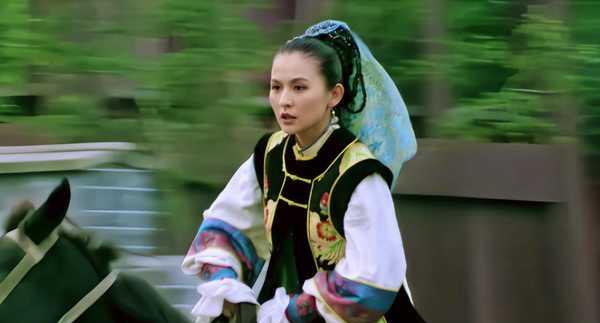The Art of Survival: Understanding Yè Lán Yī's Position in Palace Politics
An analysis of how Yè Lán Yī, a seemingly defiant palace consort, managed to survive in the imperial court through a unique combination of royal favor, strategic insignificance, and clear boundaries.

The survival of Yè Lán Yī in the imperial Chinese palace presents a fascinating study in court politics and human dynamics. While her direct and uncompromising personality might seem at odds with palace survival, a deeper analysis reveals the subtle factors that protected her position.
The foundation of her survival rested primarily on Emperor Qianlong’s particular favor. Unlike other consorts who gained imperial attention through traditional feminine virtues or political connections, Yè Lán Yī captured the emperor’s interest through her distinctive character. She reminded him of Huá Fēi, a previous favorite whose fiery spirit had left an indelible mark on his heart. This association granted her a unique position - she became a living memorial to a lost love rather than a political player.
Her background as a horse trainer from the imperial stables, traditionally considered a humble origin in Chinese society, paradoxically worked to her advantage. Without powerful family connections or political ambitions, she posed no threat to the established power structure. Furthermore, her inability to bear children after being given medicine that rendered her infertile eliminated any possibility of her producing heirs who might compete for succession.
Yè Lán Yī’s consistent behavior pattern also contributed to her survival. She maintained equal emotional distance from all parties, never forming alliances or participating in court factions. Her cold demeanor and sharp tongue were applied universally, making her predictable and, therefore, less threatening to other consorts and the empress.
Her martial skills and physical strength, developed through years of horse training, served as both protection and deterrent. While other consorts relied on servants and allies for protection, Yè Lán Yī could defend herself - a capability that made potential antagonists think twice before confronting her directly.
The timing of her presence in the palace also proved fortunate. She arrived when major power struggles between the empress and Huá Fēi had already concluded, entering a period when the emperor had grown weary of intense court politics. Her straightforward nature provided a refreshing contrast to the complex machinations that had characterized earlier years.
Perhaps most critically, Yè Lán Yī understood and accepted her position. She never sought to expand her influence or compete for greater status. This self-awareness, combined with her genuine disinterest in power politics, made her a stable and predictable element in the volatile palace environment.
Her relationship with Guǒ Gōng Wáng revealed the depth of her character. Her unwavering loyalty and protection of his interests, particularly his beloved Róng Bì, demonstrated that beneath her cold exterior lay a capacity for profound devotion - though directed outside the palace power structure.
The empress and other consorts ultimately found it more pragmatic to tolerate Yè Lán Yī’s eccentricities than to expend energy attempting to control or eliminate her. In the complex ecosystem of palace politics, she occupied a unique niche that, while unconventional, did not threaten the fundamental power structure.
Through this combination of factors - imperial favor without political influence, strength without ambition, and consistency without alliance - Yè Lán Yī crafted a sustainable position within the imperial court. Her story demonstrates that survival in such an environment did not always require traditional political skills, but could be achieved through a clear understanding of one’s position and strict adherence to self-imposed boundaries.